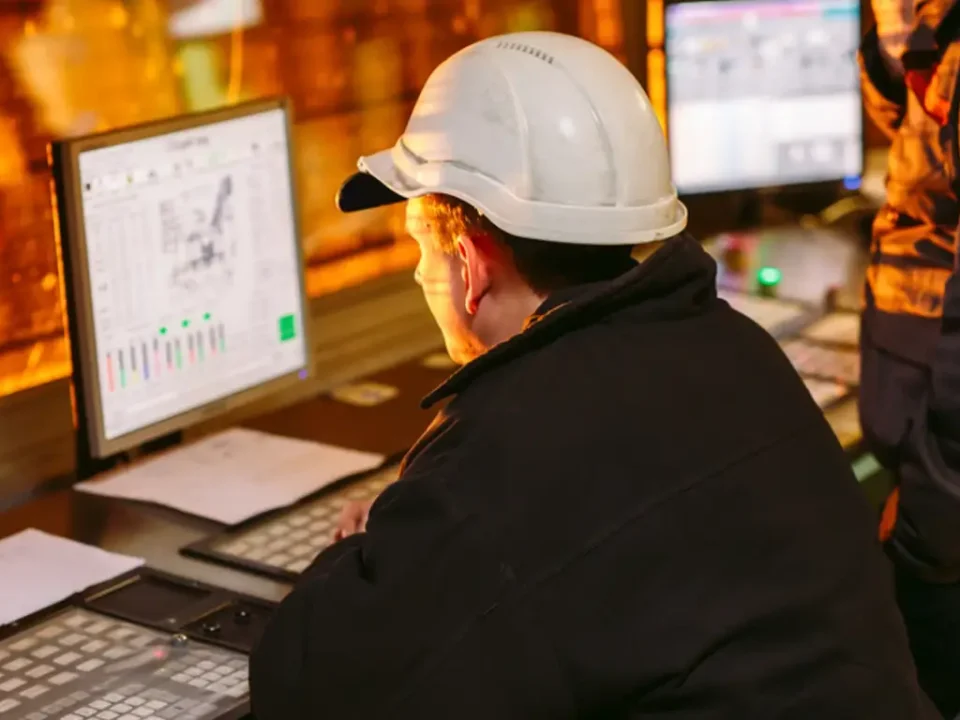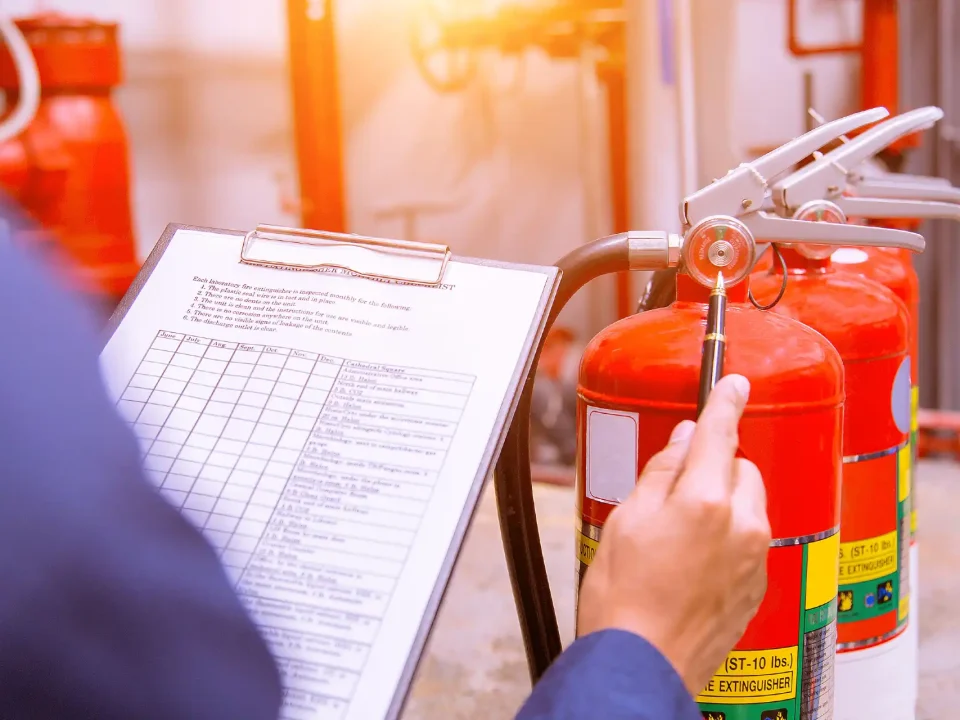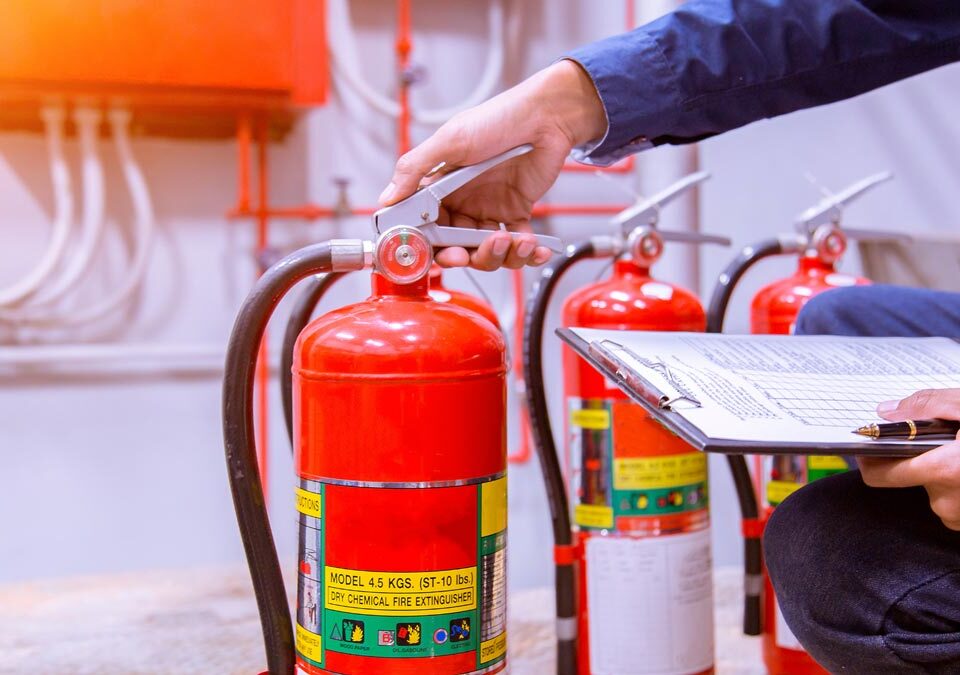Navigating the Complex World of Fire Audits: Tips from a Fire Safety Consultant

Safety Consultants Near Me
May 24, 2023
Why Safety Reports are Crucial to Workplace Safety
May 25, 2023Navigating the Complex World of Fire Audits: Tips from a Fire Safety Consultant
Navigating the Complex World of Fire Audit Consultant
Fire audits can be complicated and overwhelming, particularly for those who lack experience in fire safety regulations. However, with the right preparation and guidance, navigating these fire audits can become more manageable and even rewarding. The key is to develop a comprehensive fire safety plan that addresses all aspects of your facility’s fire safety needs.
Developing an effective fire safety plan involves several critical steps. One of the most important steps is to identify potential fire hazards throughout your facility and take measures to mitigate risks. This includes evaluating electrical systems, emergency lighting, sprinkler systems, HVAC systems, and other areas that may pose a risk in the event of a fire. It is also essential to establish positive relationships with local fire inspectors and regulatory agencies.
In the world of business and industry, fire audits are a critical aspect of ensuring the safety and security of employees, customers, and assets. However, for many companies and organizations, navigating the complex world of fire audits can be a daunting task. From developing comprehensive fire safety plans to conducting routine facility inspections, there are many key factors to consider in order to prepare for a successful audit.
But fear not! In this article, we will discuss some valuable tips on how to navigate the complexities of fire audits from an experienced consultant’s perspective. Whether you’re new to the world of fire safety or simply looking for ways to improve your current practices, we promise that our insights will help you take control of your fire safety plan and preparations.
The Importance of Preparation for Successful Fire Audits
When it comes to fire safety, preparation is key. It’s not something you can procrastinate on until the week before your audit and expect to pass with flying colors. Proper preparation takes time, effort, and a well thought-out plan.
Preparing for a fire audit should begin long before the actual inspection date. You should review all relevant regulations and codes and ensure that your facility meets or exceeds them. Conduct a thorough assessment of your facility to identify any potential hazards or issues that may need attention prior to the inspection.
Your comprehensive fire safety plan should be updated regularly and readily available in case of an emergency or inspection. Train your staff on their roles and responsibilities in the event of a fire, conduct regular drills, and establish procedures for handling any identified problems.
By taking fire safety seriously and being properly prepared for an audit, you can protect your employees, customers, property, and reputation while minimizing liability risks. Remember – failing to prepare is preparing to fail.
Developing a Comprehensive Fire Safety Plan: Tips and Tricks
Creating a comprehensive fire safety plan is critical to the success of your fire audit. This plan should be unique to your facility, ensuring that all potential fire hazards are identified and addressed. In general, an effective fire safety plan should include procedures for preventing fires from occurring in the first place, as well as procedures for responding to a fire emergency if one does occur.
When developing your plan, start with identifying all potential ignition sources within the facility and determine strategies for managing them. Consider using physical barriers or automatic shutdown systems where necessary. Make sure that all staff members understand their role in preventing fires and responding appropriately if one occurs. Proper signage and communication channels are also critical in ensuring that everyone is on the same page.
Identifying Potential Fire Hazards and Mitigating Risk
The first step in mitigating fire risk is to identify potential hazards. This requires a thorough assessment of your facility, including the layout, equipment, and materials being used. Some common fire hazards to look out for include improperly stored flammable liquids, overloaded electrical outlets or circuits, and blocked exits or stairwells.
Once potential hazards have been identified, it’s important to take appropriate measures to mitigate the risk. This may involve implementing safety protocols for handling flammable materials, ensuring that electrical systems are up-to-code and properly maintained, and maintaining clear pathways for egress throughout the facility. Additionally, it’s important to conduct regular inspections to ensure that these measures are being followed consistently.
By identifying potential fire hazards early on and taking proactive steps to mitigate the risk, businesses can avoid costly fines from fire inspectors as well as protect their staff and assets from harm.
Staff Training and Education: Best Practices for Fire Safety
One of the most critical components of a successful fire safety plan is staff training and education. It is crucial to ensure that every member of your team receives comprehensive training in fire prevention, response, and evacuation procedures. This includes not only full-time employees but also temporary workers, contractors, and volunteers who may be on site during a fire emergency.
The first step in providing effective fire safety training is to identify potential hazards specific to your facility and develop strategies to mitigate those risks. Once these risks are identified, staff members must be trained on how to handle different types of fires, how to operate extinguishers and other firefighting equipment properly, and how to assist in evacuations. Regularly scheduled drills should also be conducted to ensure that all staff members are familiar with the emergency response plan and that they can respond quickly and efficiently in an actual emergency.
Our Services are
- Fire Audit
- Fire Risk Assessment
- Fire load calculation
- Fire Adequacy Studies
- Fire Protection system design and engineering
TSM TheSafetyMaster® Private Limited
Unit No 221-451-452, SPL1/J, 2nd Floor, Sunsquare Plaza Complex, RIICO Chowk, Bhiwadi 301019, Rajasthan, India
Phone: +91 1493 22 0093/+91-124-4881109
Mobile: +91 7665231743/9413882016
Email: info@thesafetymaster.com




